In Search of Liberalism
When one talks about liberalism, what do they mean? The classical definition is in direction position to its modern meaning.

What you see below is from a 2007 paper I wrote while enrolled in graduate school. My professor at the time was a devote Marxist. This was my attempt to show him that it was illogical to call oneself a liberal and Marxist or communist as a disregard for private property was the direct antithesis of liberalism.
Over a decade later, I find a lot of value in this paper that was directed at an audience of one and now share it with you. In a social media age of memes, inverted definitions and reactionary, cancel culture, my hope is not that it converts you to a party or cause, but challenges you and makes you think about why you believe what you believe in the political sphere.
You’ll note this paper somewhat abruptly ends. This was due to the professor’s page limit. I have decided not to revise the paper in any way. What you read below is what I wrote in 2007. The only additions are some pictures and captions to break up the flow so your eyes get a break from too much raw text.
This resurrected paper is not an absolute declaration of personal politics. It was a thought experiment to say, “If we accept one premise, what else must we logically accept?”
I still err on the side that government—at best—is a necessary evil and that personal liberty is paramount. Whether that means the total abolition of the state or shrinking it as much as possible is an age-old debate that will probably never end, but a conversation always worth having.
Now, let’s go back to 2007 …
Certain words are thrown about so often that over time they become theoretically diluted and instead resemble an ideological placeholder, i.e, a mere posterior part of phrase lacking any concrete reference to reality. Liberalism, perhaps more than any other word, meets this criteria. Indeed, when one speaks of liberalism it is always qualified with an ancillary adjective, e.g., classical, social, or progressive liberalism to name a few among many.
The goal in searching for a coherent definition of liberalism is not an attempt at historical resurrection — searching through texts and asserting what the term ought to be — but rather finding complementary threads that unite in presenting a logically consistent theoretical framework.
Sir George Cornewall Lewis states this academic objective succinctly:
“If political science be properly understood; if it be confined within the limits of its legitimate province; if its vocabulary be well fixed by sound definitions and a consistent usage; there is no reason why it should not possess the same degree of certainty of which belongs to other sciences founded on observation.”
A valid theory or framework is one that does and will always hold up in practice (provided certain conditions hold). Thus, the common quip of, “Well, that’s fine in theory but not in practice,” reveals itself to be contradictory. Either one is talking in terms of theory which is manifested in action or grabbing in the dark—hoping that time and popular opinion will assert a heavier weight than reason.
The Axiom: Property
In order for a system of thought to stand the test of any individual’s reason it must, by its very nature, be discursive. All auxiliary concepts must be tied back to a central starting point. While the degree, or rather extent, seems to be in constant flux, a general consensus is found among liberal thinkers: the importance of property.
Economist Ludwig von Mises stresses the importance of this central axiom saying,
That program of liberalism, therefore, if condensed into a single word would have to read: property, that is, private ownership of the means of production (for in regard to commodities ready for consumption, private ownership is a matter of course and is not even disputed even by the socialists and communists). All the other demands of liberalism result from this fundamental demand.
The term — property — at its core should not denote a particular party affiliation but a method of social analysis. Economist Hans-Hermann Hoppe notes this crucial point:
Next to the concept of action, property is the most basic category in the social sciences. As a matter of fact, all other concepts … aggression, contract, capitalism and socialism — are definable in terms of property: aggression being aggression against property, contract being a nonaggressive relationship between property owners, socialism being a institutionalized policy of aggression against property, and capitalism being an institutionalized policy of the recognition of property and contractualism.
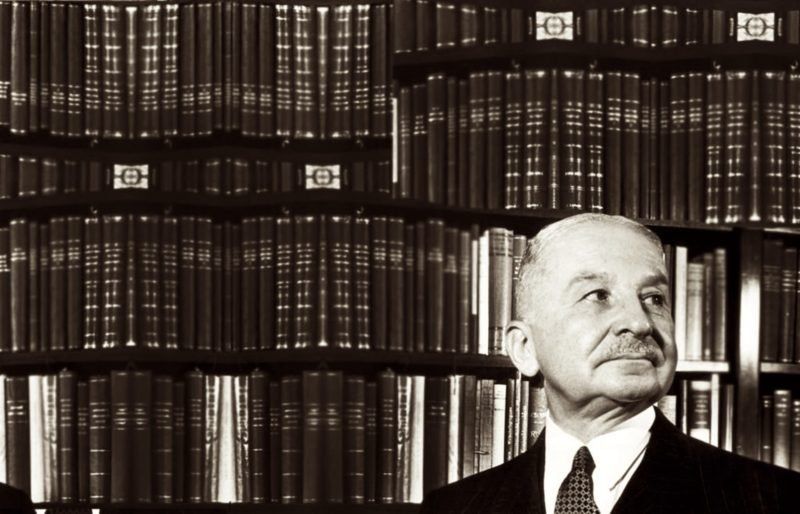
The stressing of the terms “social analysis” is important. For, without more than one individual, the necessity of property does not arise. If one existed in a state of nature that resembled the Garden of Eden and no other individuals were present, then the need for the concept of property would not arise.
Property is not an absolute concept that stands on its own. Rather, it is a normative concept that designates ownership of a particular good to a particular individual. Hence, there is always an individual attached to a description of property, e.g., Jone’s house, Smith’s apple orchard, etc.
Economist Jorg Guido Hulsmann illustrates this:
property is a partial aspect of something more comprehensive to which it belongs … it is a part of a person, which is why we use possessive pronouns to speak of my car, your flowers, their hamburgers, etc. … Unless one is in a position to control the thing under consideration, it cannot be one’s property. It would be meaningless for me to assert, for example, that the moon is mine, or that all of China is my property.
Even for collectivists there is always a designation of property — it is just inverted. Instead of a particular individual or group of individuals voluntary owing property, terms such as the “State” or “public” are at the forefront of a property description.
However, the world is full of individuals and this makes property a prerequisite for inter-actor action. This is why Hoppe says, “A definition and theory of property must precede the definition and establishment of all other economic terms and theorems.
One cannot talk about property in goods without first talking about property in person. As mentioned earlier, property is connected to ownership. Yet, if one does not own themselves, how can they own any other property? This vital steppingstone — termed self-ownership — comes from John Locke:
… every man has a Property in his own Person. This no Body has any Right to but himself. The Labour of his body, and the Work of his Hands, we may say, are properly his. Whatsoever then he removes out of the State that Nature hath provided, and left it in, he hath mixed his Labour with, and joyned to it something that is his own, and thereby makes it his Property. It being by him removed from the common state Nature placed it in, it hath by this labour something annexed to it, that excludes the common right of other Men … He that is nourished by the Acorns he pickt up under an Oak, or the Apples he gathered from the Trees in the Wood, has certainly appropriated them to himself. No body can deny but the nourishment is his. I ask then, When did they begin to be his? When he digested? … And ’tis plain, if the first gathering made them not his, nothing else could. That labour put a distinction between them and common … will any one say he had no right to those Acorns or Apples he thus appropriated, because he had not the consent of all Mankind to make them his? … If such a consent as that was necessary, Man had starved … We see in Commons, which remain so by Compact, that ’tis the taking any part of what is common, and removing it out of the state Nature leaves it in, which begins the Property; without which the common is of no use … The labour that was mine, removing them out of that common state they were in, hath fixed my Property in them.
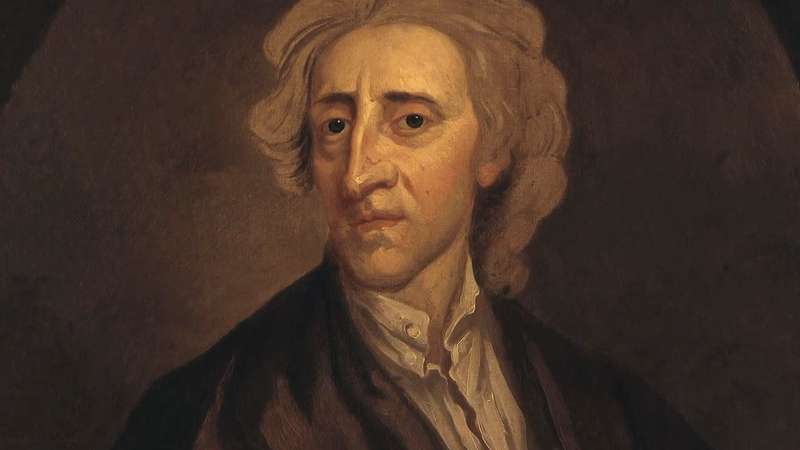
If person A were not the owner of their physical body only two alternatives would be available: another person, B, would be the owner of all goods appropriated, produced or contractually acquired by A or A and B would be equal co-owners of both parties bodies and goods. Hoppe outlines the ambiguity and invalidity of these claims:
In the first case, A would be B’s slave and subject to exploitation … two distinct classes of people would be created — exploiters (B) and exploited (A) — to whom different “law” would apply .. this rule fails the “universalization test” … for in order to be able to claim a rule to be a “law” (just), it is necessary that such a rule be universally — equally — valid for everyone. In the second case … each activity of a person requires the employment of scarce goods … Yet if all goods were the collective property of everyone, then no one, at any time and in any place, could ever do anything with anything unless he had every other co-owner’s prior permission to do what he wanted to do.
The Property Axiom Extended to Goods
Now that it has been logically established that each person owns their physical body the next step — since Locke’s process of mixing labor, i.e., homesteading or appropriation, has been discussed — is to elaborate on how property outside an person’s physical body comes to be. Property is a prerequisite for discussing inter-actor action, but property must be employed in the satisfaction of a want on the part of an actor.
A person only homesteads property that is scarce. If something is not scarce, e.g., the amount of air, then the potential for conflict is almost nonexistent. Air is known, in economic terms, as a condition of general human welfare or a free good.

Commenting on the nature of goods, Rothbard states,
Any good is always scarce and therefore must always command a price in accordance with the demand for it and the supply available. The only “free goods” on the market are not goods at all, but abundant conditions of human welfare that are not the subject of human action.
This is because it is so abundant and the act of acquiring air, i.e., merely breathing in, is so simple and autonomous that no scarce means, e.g., one’s time and labor, are put into acquiring the good.
However, if conditions change, such as when one goes underwater where air is not a condition of general human welfare, then one will be willing to pay for air. Likewise, when one goes into outer space, that person pays for air. Indeed, people pay to have their air “conditioned” in various ways, e.g., central heat or air in a building. Air in all these later scenarios has turned into a scarce good.
Free goods are important but the majority of what is available on the Earth is not as abundant and as easily acquirable as air. All other goods are either (a) immediately and directly serviceable in the satisfaction of an actor’s wants or (b) used in the production of directly serviceable goods that will be available at some point in the future. The first group are called consumer’s goods and the second are called producer’s goods.
The nature of these various classes of goods — consumer’s goods and producer’s goods — shows that in order for a person to exist, for lack of a better word, that a person must “exploit” nature. Labor, by itself is just that, labor — it must to be mixed with nature-given factors to produce something that an actor desires.
This is in accordance with the basic physics principle of “no creation ex nihilo” known simply as “something cannot come into existence out of nothing.” A person must mix their labor with nature-given factors in order to obtain the fruits of their labor. Nature does not provide something like a fishing pole, but an actor can use his labor to collect various sticks to assemble the final product.
Nearly every product available today is pulled from nature and assembled into something completely original that was not inherently present in the state of nature.
The Exchange of Goods and the True Nature of Value
Since it has been shown that each actor owns their own person, appropriates nature-given factors, i.e, the process of homesteading, and then takes those nature-given factors and turns them into goods, it is now time to look at the role of a free market. If anything is more misunderstood than the concept of private property, it is a free market, i.e., capitalism. The disconnect is not illogical. If one does not understand property, than it should not be surprising that the free market is misunderstood.
What is the market? It is merely the voluntary interaction among people and the exchange of their private property. Economist Thomas DiLorenzo has noted that “private property is the most important distinguishing feature of capitalism.”

In an act of exchange, e.g., Jones sells Smith four apples for $1, what is being exchanged are property titles. Jones is selling Smith the right to those four apples and then Smith is free to do what he wants with those apples.
The stressing of the term “property titles” is important. For once an analysis moves from the exchange of a physical good to that of a service — which is still considered a good in economic terms — the “title” part becomes evident.
Take Jones and Smith again. Suppose Jones sells Smith his labor services of harvesting apples for $6 an hour. Smith has not bought Jones or his labor, but secured the title — at the negotiated price — to Jones’ labor for that set amount of time. Jones can leave at any time or Smith can fire Jones. Hence, the property title can stay — provided both Smith and Jones continue to be satisfied with the arrangement — or can wither away if either party decides it should stop. Unlike the case of the apple purchase — where the property has physically left Jones and gone to Smith — with a service what is being contracted is some good for a set period of time.
This stresses the inalienable nature of human will. Hulsmann notes that it is “impossible that anybody but me makes use of my will power and of my ability to make choices. In other words, the human will is inalienable. By its very nature it cannot be separated from the human person because it is an intrinsic property of the human person.”
Echoing this, Rothbard states that “a man cannot permanently transfer his will, even though he may transfer much of his services and his property.”
When two actors engage in an exchange each actor expects to benefit. Going back to Jones and Smith, Jones sold his apples because he valued the $1 more than the four apples and Smith gave his $1 to Jones because he valued the four apples more than the $1. All trades — including the aforementioned example — take place because of unequal or inverse valuation.
Each actor must value what they are getting more than what they are giving away. This stresses the subjective nature of all value in all acts of exchange, i.e., capitalism, or a free market.
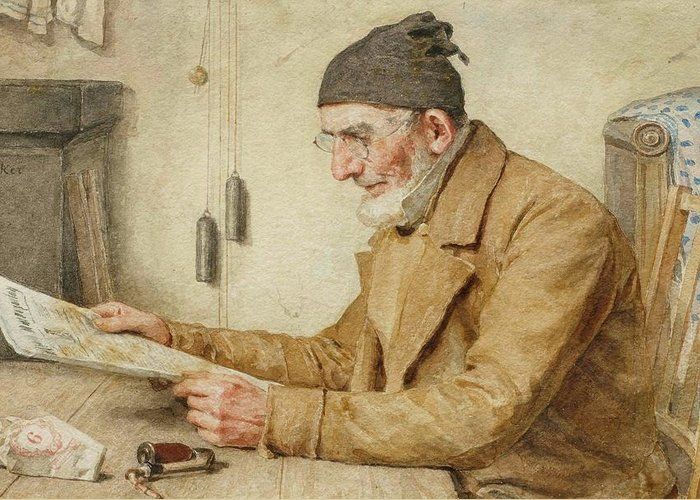
Economist Carl Menger was one of the first to stress the subjective, unmeasurable nature of value:
value is nothing inherent in goods and … is not a property of goods. But neither is value an independent thing. There is no reason why a good may not have value to economizing individual but no value to another individual under different circumstances. The measure of value is entirely subjective in nature, and for this reason a good can have a great value to one economizing individual, little value to another, and no value at all to a third, depending on the differences in their requirements and available amounts. What one person disdains or values lightly is appreciated by another, and what one person abandons is often picked up by another. While one economizing individual esteems equally a given amount of one good and a greater amount of another good, we frequently observe just the opposite valuations with another economizing individual.
A lot of confusion arises about the perception of the free market because of the inability to grasp the aforementioned subjective nature of value. The alternative — the labor theory of value — confuses many. Indeed, it might even confuse the reader because earlier the discussion centered on the mixing of one’s labor with a nature-given resource to appropriate property. But labor serves just that function — to appropriate the property — it does not give it value.
The labor theory of value was expounded by such classical economists as Adam Smith and David Ricardo. The most well-known proponent of it was Karl Marx. The argument put forth is that the labor time put into a good gives a good value. Yet the argument does not hold water. David Gordon points this out:
Everyone knows that some people are much more efficient workers than others. You might build a wooden bookend in a few hours, but it would take me several years to do it. Will my bookend be worth several times more than yours? Of course not! Economic value, then, does not depend on the the labor time required to produce something.
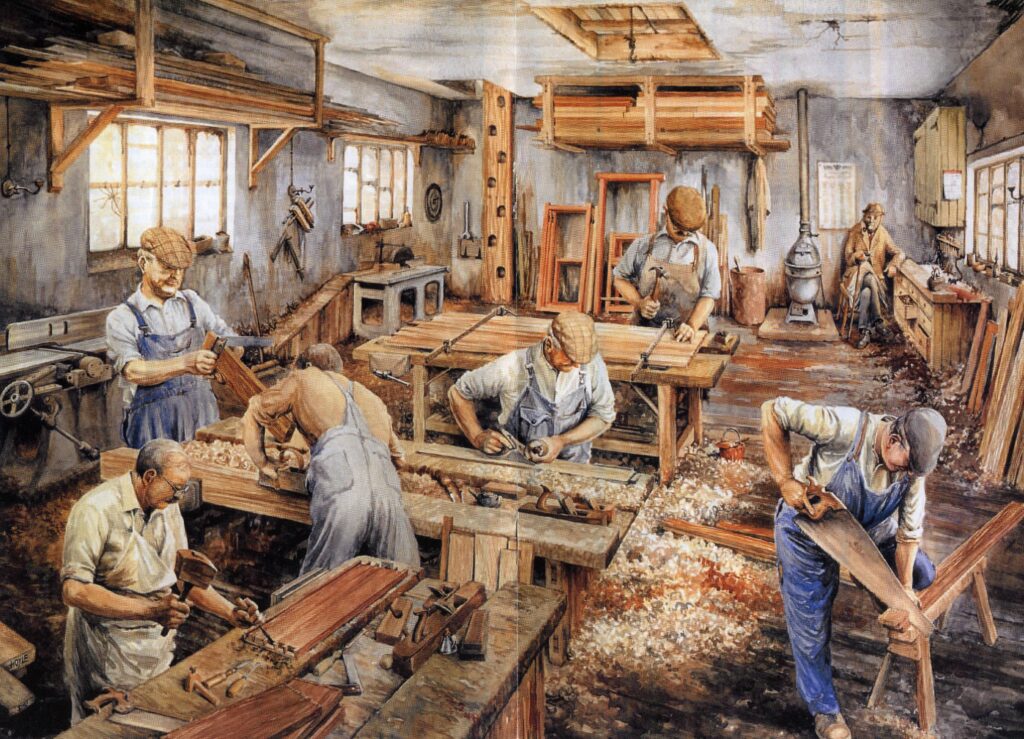
A common criticism is that only “socially necessary” labor determines value, i.e., the market price. What determines what labor is “socially necessary”? It is the subjective evaluations of consumers and producers. This is why labor is not one abstract lump sum.
This methodology dominates the thinking of many macro and collectivist thinkers. John Maynard Keynes was one of the most famous proponents and Henry Hazlitt swiftly demolishes this false criteria for judging aspects of an economy:
in a free … economy, wages do not and cannot adjust themselves en bloc, as a unit, by some neat, fixed, round, uniform percentage. Nor do prices adjust themselves en bloc, by a uniform percentage or as a unit. Nor does production adjust itself en bloc or as a unit. In a free economy there are literally millions of different prices, millions of individual wage-rates … there are millions of daily adjustments of one wage-rate to another, of one price to another, of this wage-rate to another, of one price to another, of this wage-rate to that price, of that price to this wage-rate. Keynes … thinks, in short, in lumps. He deals only in his own lump-concepts like average-”level”-of-wages, average-”level-of-prices, aggregate demand, aggregate supply … Keynes cannot understand a free economy precisely because it does not consist of such lumps.
Is the bricklayer’s labor the same as the labor of the lawyer? The wages for these different types of professions are determined by their demand and supply — which is rooted in the subjective wants of people. It is apparent that even the labor theory of value — which tries to be objective — not only is logically inconsistent, but must appeal to the subjective nature of individuals evaluations to ultimately come up with some price.
To step outside the subjective nature of value and claim that certain goods have an objective or intrinsic value is to miss the point of why a person acts. Each actor, through his actions, demonstrates a preference for one state of affairs over another. This concept, quite simply, is called demonstrated preference. Rothbard notes that actual choice reveals,
or demonstrates, a mans preferences; that is, that his preferences are deducible from what he has chosen in action. Thus, if a man chooses to spend an hour at a concert rather than a movie, we deduce that the former was preferred, or ranked higher on his value scale. Similarly, if a man spends five dollars on a shirt we deduce that he preferred purchasing the shirt to any other uses he could have found for the money. This concept of preference, rooted in real choices, forms the keystone of the logical structure of economic analysis, and particularly utility and welfare analysis.
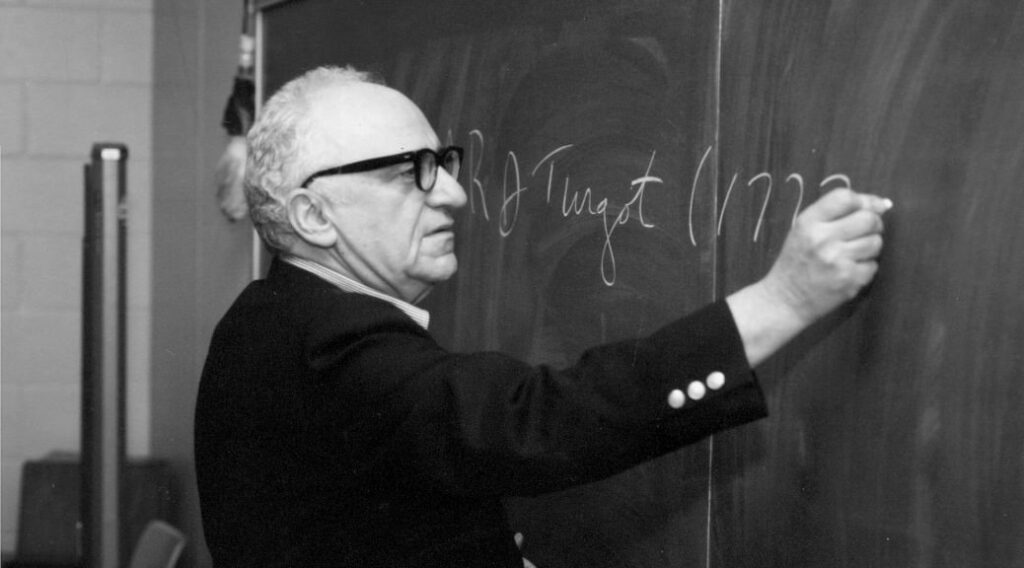
This comes full circle to the nature of exchange — action is not possible without property and one cannot deem certain goods more sacrosanct than others without engaging in interpersonal evaluations.
As Richard Epstein notes, “A system of private rights, for example, only specifies how property is acquired and what means are used to transfer it from one person to another. It does not specify what things must be acquired, when they must be transferred, or what price is to be paid.”
From State of Nature to The State
Starting with the axiom of property and developing the auxiliary concepts, the discussion has centered on an unhampered market free of coercion. The cooperation of individuals seeking their own distinct ends with their own means, i.e, property, is the central mark of a proper definition of society.
Society is the outcome of conscious and purposeful behavior. This does not mean that individuals have concluded contracts by virtue of which they have founded human society. The actions which have brought about social cooperation and daily bring it anew do not aim at anything else than cooperation and coadjuvancy with others for the attainment of definite singular ends. The total complex of mutual relations created by such concerted actions is called society.
This striving for individual ends that brings out the cooperation of multiple individuals is famously illustrated by Adam Smith:
It is not from the benevolence of the butcher, the brewer, or the baker, that we expect our dinner, but from their regard to their own interest. We address ourselves, not to their humanity but to their self-love, and never talk to them of our own necessities but of their advantages.

To conceive of society as a living entity and having distinct ends of its own, e.g, making sure there is a sense of “community” where wealth is “properly distributed,” is to step outside the bounds of reason and leap headfirst in the direction of romance.
The principle of Occam’s razor was best employed by Frank Chodorov who aptly stated, “Society is people.”
Mises, again, proves to be a proper guide and his elucidation shows that if definitions — in this case "society" — take a life of their own they can endlessly run amuck:
society is — logically or historically — antecedent to the individual. In every other sense this dictum is either empty or nonsensical. The individual lives and acts within society. But society is nothing but the combination of individuals for cooperative effort. It exists nowhere else than in the actions of individual men. It is a delusion to search for it outside the actions of individuals.
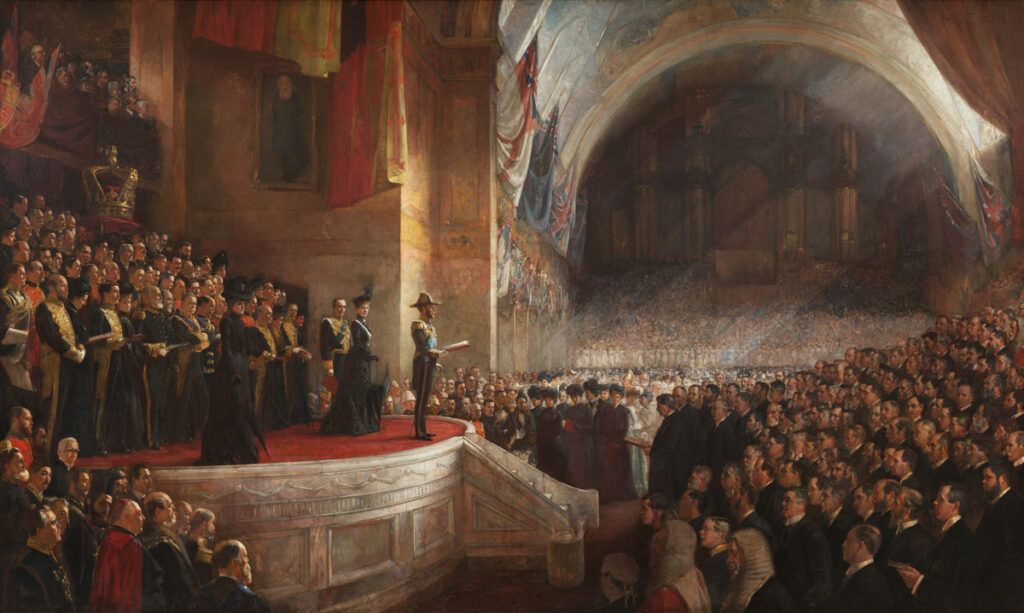
Clearly, though, individuals do not always respect the property of others and engage in actions such as theft and coercion. The fact that each individual has free will does not make them immune to errors in judgment and action. Indeed, the central point of freedom of one’s will is the ability to do right and wrong. This realization brings to the forefront the beginning of liberal conceptions of the State.
For Locke the main reason for erecting a State is because outside of a final arbiter, there is no way to settle property disputes:
Men being, as has been said, by Nature, all free, equal and independent, no one can be put out of this Estate, and subjected to the Political power of another, without his own Consent. The only way whereby any one devests himself of his Natural Liberty, and puts on the bondsof Civil Society is by agreeing with other Men to joyn and unite into a Community, for their comfortable, safe, and peaceable living one amongst another, in a secure Enjoyment of their Properties, and a greater Security against any that are not of it. This any number of Men may do, because it injures not the Freedom of the rest; they are left as they were in the Liberty of the State of Nature. When any number of Men have so consented to make on Community or Government, they are thereby presently incorporated, and make one Body Politick, wherein the Majority have a Right to act and conclude the rest.
While the term “consent” might conjure up to many a corollary of a contract — an agreement between two people dealing with the terms of exchange of their property — it cannot be illustrated in this manner. Ernst Cassirer illustrates the difference between contract and consent, i.e, a state-contract:
The doctrine of the state-contract becomes in the seventeenth century a self-evident axiom of political thought … this fact marks a great and decisive step. For if we adopt this view, if we reduce the legal and social order to free individual acts, to a voluntary contractual submission of the governed, all mystery is gone. There is nothing less mysterious than a contract. A contract must be made in full awareness of its meaning and consequences; it presupposes the free consent of all parties concerned. If we can trace the state to such an origin, it becomes a perfectly clear and understandable fact.
The obvious problem with the notion of consent — besides the fact that no State has been erected by the consent of every individual within its territorial bounds — is that of time. To some extent one can say consent was explicit during the founding of a country. But what happens when the first generation withers away and the next generation is born into the State? Locke tries to get around this by modifying his notion of consent, throwing the vague term “tacit” into the mix:
The difficulty is, what ought to be look’d upon as a tacit Consent, and how far it binds, i.e., how far any one shall be looked on to have consented, and thereby submitted to any Government, where he has made no Expression of it at all. And to this I say, that every Man, that hath any Possession, or Enjoyment, of any part of the Dominions of any Government, doth thereby gives his tacit Consent, and is as far forth obliged to Obedience to the Laws of that Government, during such Enjoyment, as any one under it; whether this his Possession be of Land, to him and his Heirs for ever, or a Lodging only for a Week; or whether it be barely travelling freely on the Highway; and in Effect, it reaches as far as the very being of any one within the Territories of that Government.
Thus, according to Locke’s criteria, the mere fact that one is born into a State means that that individual tacitly consents to the authority of the State. In essence, the State perpetuates its own existence because it was there before the individual was born.
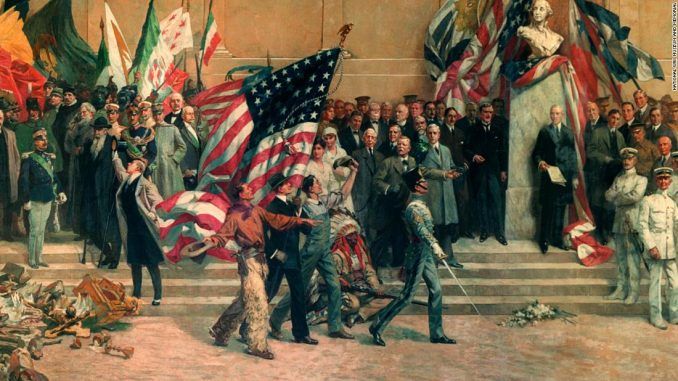
Hoppe notes the strange nature of Locke’s consent criteria:
In effect, according to Locke, once a government has come into existence, regardless of whether one has expressly agreed to its rule in the first place or not and no matter what this government does in the following, one has “tacitly” consented to it and whatever it does as long as one continues to live in “its” territory. That is, every government always has the unanimous consent of everyone residing under its jurisdiction, and only emigration — “exit” — counts as a “no” vote and the withdrawal of consent according to Locke.
It should be emphasized that even if one engages in a “no” foot vote or “exit,” they are likely to fall under the jurisdiction of yet another State.
Even one of America’s founders — Thomas Jefferson — noted the problem of continual consent:
It is now forty years since the constitution of Virginia was formed. The same tables inform us that, within that period, two-thirds of the adults then living are now dead. Have then the remaining third, even if they had the wish, the right to hold obedience to their will, and to laws heretofore made by them, the other two-thirds, who, with themselves, compose the present mass of adults? If they have not, who has? The dead? But the dead have no rights. They are nothing; and nothing cannot own something. Where there is no substance, there can be no accident.
The thoughts of one more early American thinker — Thomas Paine — illustrate the same problem of consent between the living and the dead:
There never did, there never will, and there never can, exist a Parliament, or any description of men, or any generation of men, in any country, possessed of the right or the power of binding and controuling posterity to the “end of time,” or of commanding for ever how the world shall be governed, or who shall govern it; and therefore all such clauses, acts or declarations by which the makers of them attempt to do what they have neither the right nor power to do, nor the power to execute, are in themselves null and void. Every age and generation must be as free to act for itself in all cases as the ages and generations which preceded it. The vanity of governing beyond the grave is the most ridiculous and insolent of all tyrannies. Many has no property in man; neither has any generation a property in the generations which are to follow … It is the living, and not the dead, that are to be accommodated. When man ceases to be, his power and his wants cease with him; and having no longer any participation in the concerns of this world, he has no longer any authority in directing who shall be its governors, or how its Government shall be organised, or how administered.
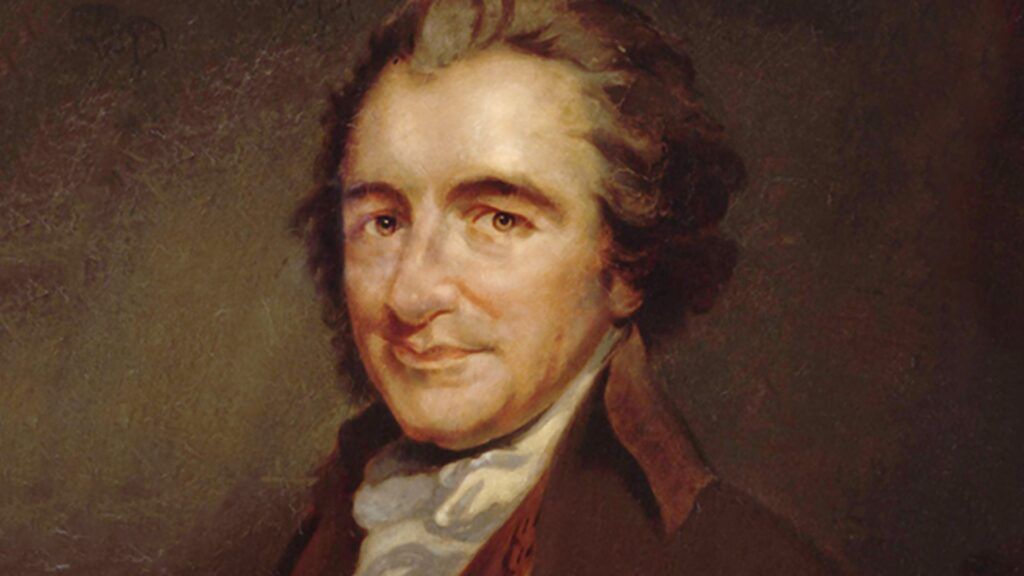
Yet, whether or not consent is tacit or explicit and does or does not transcend the boundaries of time, a more fundamental question is hidden below the apparent surface: what is the State and can it ever have any authority over an individual and their property?
The State is not a living entity. Rather it is a method of inter-actor action reserved to a select few. Rothbard writes:
Those who object that private individuals are mortal, but that “governments are immortal,” indulge in the fallacy of “conceptual realism” at its starkest. “Government” is not a real acting entity but is a real category of action adopted by actual individuals. It is a name for a type of action, the regularization of a type of interpersonal relation, and is not itself an acting being.
A thorough definition of a State is provided by Rothbard: “that organization in society which attempts to maintain a monopoly of the use of force and violence in a given territorial area; in particular, it is the only organization in society that obtains its revenue not by voluntary contribution or payment for services rendered but by coercion.”
For some writers during the the middle of the 17th century, the full development of one’s own reason meant not just critiquing religion and administrative components of a State, but the concept of the State itself. Edmund Burke leveled harsh criticism saying:
The Monarchic, Aristocratical, and Popular Partizans have been jointly laying their Axes to the Root of all Government, and have in their Turns proved each other absurd and inconvenient. In vain you tell me that Artificial Government is good, but that I fall out only with the Abuse. The Thing! the Thing itself is the Abuse! Observe … the grand Error upon which all artificial legislative Power is founded. It was observed, that Men had ungovernable Passions, which made it necessary to guard against the Violence they might offer to each other. They appointed Governors over them for this Reason; but a worse and more perplexing Difficulty arises, how to be defended against the Governors? Quis custodiet ipsos custodes?In vain they change from a single Person to a few. These few have the Passions of the one, and they unite to strengthen themselves, and to secure the Gratification of their lawless Passions at the Expence of the general Good. In vain do we fly to the Many.
Burke eventually became a famous politician and this has led many to call this work a piece of satire. Rothbard provided a critique as to why this may not have been the case in his article, “A Note on Burke’s Vindication of the Natural Society.”
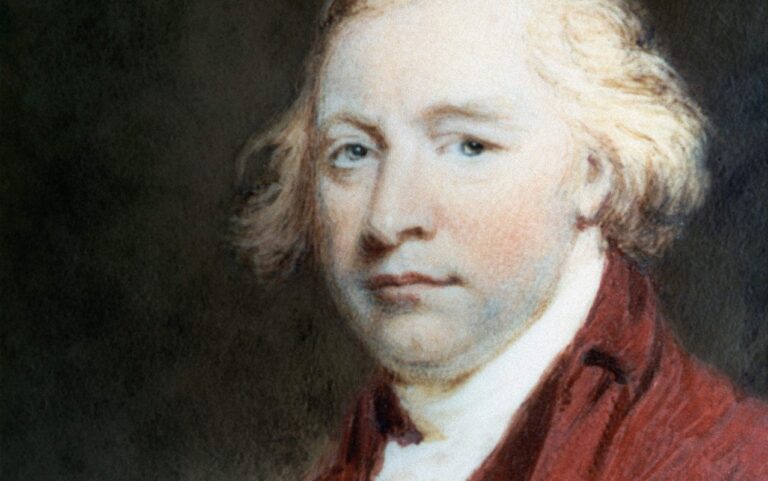
The very nature of distinct means available to those in the employ of the State is what sets it apart from the rest of society. German sociologist Franz Oppenheimer noted that the means of action become distinct once the State steps into the picture:
There are two fundamentally opposed means whereby man, requiring sustenance, is impelled to obtain the necessary means for satisfying his desires. These are work and robbery, one’s own labor and the forcible appropriation of the labor of others … I propose in the following discussion to call one’s own labor and the equivalent exchange of one’s own labor for the labor of others, the “economic means” for the satisfaction of needs while the unrequited appropriation of the labor of others will be called the “political means” … The State is an organization of the political means. No State, therefore, can come into being until the economic means has created a definite number of objects for the satisfaction of needs, which objects may be taken away or appropriated by warlike robbery.
Now, with the State, two distinct kinds of power arise: those that Albert Jay Nock entitled “State power” and “social power.” “Social power” refers to actors engaged in voluntary exchange. “State power” is the coercive means used to benefit the rulers over the ruled.
Therefore, it is not hard to see why Nock referred to the State as the institution which “claims and exercises a monopoly of crime … forbids private murder, but itself organizes murder on a colossal scale. It punishes theft, but itself lays unscrupulous hands on anything it wants.”
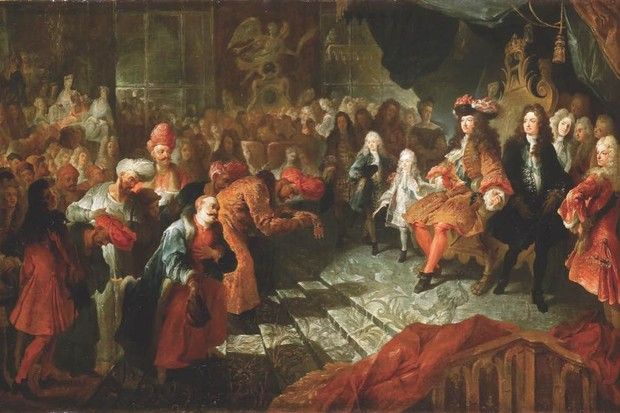
Rothbard elaborates on this brand of class analysis:
While the Nock-Oppenheimer class analysis superficially resembles that of Marx, and a Nockian would, like Lenin, look at all State action whatever in terms of “Who? Whom? (Who is benefiting at the expense of Whom?), it is important to recognize the crucial differences. For while Nock and Marx would agree on the Oriental Despotic and feudal periods’ ruling classes in privilege over the ruled, they would differ on the analysis of businessmen on the free market. For to Nock, antagonistic classes, the rulers and the ruled, can only be created by accession to State privilege; it is the use of the State instrument that brings these antagonistic classes into being. While Marx would agree on pre-capitalistic eras, he of course also concluded that businessmen and workers were in class antagonism to each other even in a free-market economy, with employers exploiting the workers. To the Nockian, businessmen and workers are in harmony — as are everyone else — in the free market and free society, and it is only through State intervention that antagonistic classes are created.
Collective Wants and Collective Appropriation
Bundled with the idea of the State is always the idea of collective wants. Earlier the notion of a final arbiter in legal disputes was mentioned. The argument follows that since everyone relies on the State to decide in legal matters, everyone must pay the State to provide this “service.”
This type of reasoning is pushed further suggesting that certain goods are “collectively” wanted and it is hard to exclude free riders.
Rothbard notes the logical holes in the theory of collective wants and joint consumption:
in one sense no consumption can be joint, for only individuals exist and can satisfy their wants, and therefore everyone must consume separately. In another sense, almost all consumption is “joint.” Baumol, for example, asserts that parks are an example of “collective wants” jointly consumed, since many individuals must consume them. Therefore, the government must supply this service. But going to a theater is even more joint, for all must go at the same time. Must all theaters therefore be nationalized and run by the government? … all modern consumption depends on mass production methods for a wide market. What individuals could buy steel or automobiles or frozen foods, or almost anything else, if enough other individuals did not exist to demand them and make their mass-production methods worthwhile? Baumollian interdependencies are all around us, and there is no rational way to isolate a few services and call them “collective.”
Yet this flies directly in the face of sound economic reasoning. Goods can only be wanted by an individual. The sum of individual wants is then called the demand. A “collective” never does wanting—only an individual does.
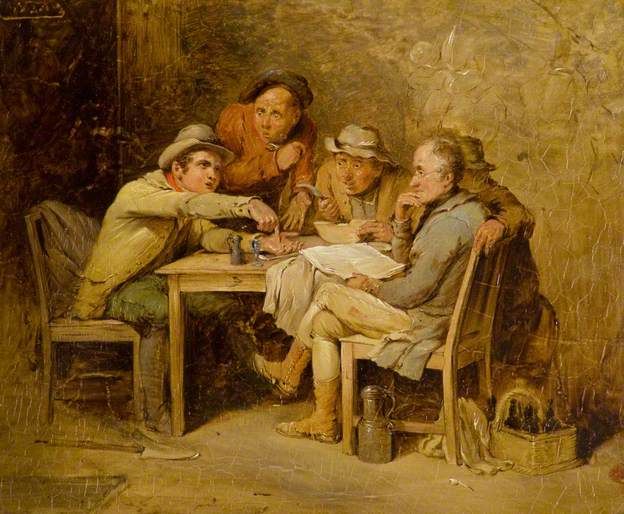
This collective line of reasoning is pushed even further — under the theory of public goods — to suggest that the free market “fails” in that there are not “enough” competitors to provide a certain good, so it must be provided for by the government.
Typical examples of public goods are roads, courts, police, etc. At one time, most roads in the United States were produced and maintained privately. While the majority are now public — some are still private. Also, legal systems throughout history have been developed that were completely private.
What should be noted is that in these areas the market has not “failed.” People have not been allowed to produce the goods in question because the State holds monopolies on each of these areas.
Hoppe comments that it is impossible to gauge whether government services are provided in an efficient manner for,
No one buys government “goods” or “services.” They are produced, and costs are incurred to produce them, but they are not sold and bought. On the one hand, this implies that it is impossible to determine their value and find out whether or not this value justifies their costs. Because no one buys them, no one actually demonstrates that he considers government goods and services worth their costs, and indeed, whether or not anyone attaches any value to them at all. From the viewpoint of economic theory, it is thus entirely illegitimate to assume, as is always done in national income accounting, that government goods and services are worth what it costs to produce them.
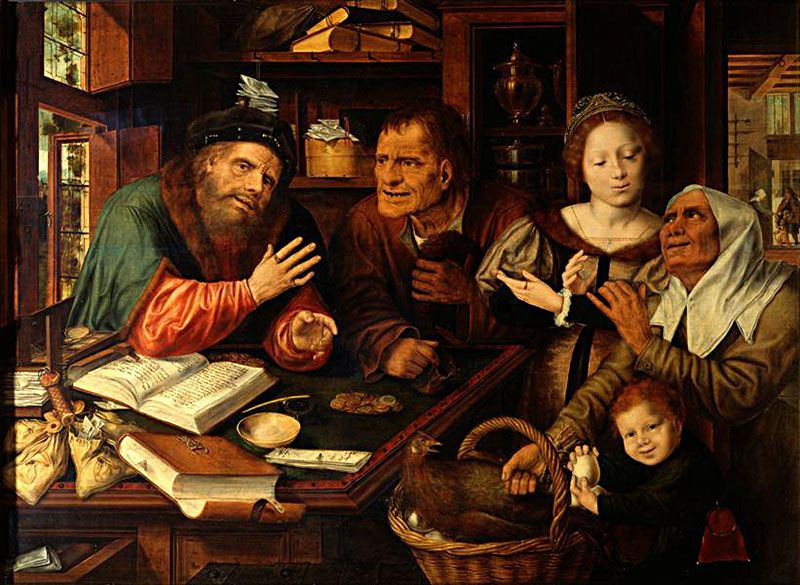
A common argument advanced for the State to provide various services is that individuals and businesses are short-sighted while people in the employ of the State have the long view in mind. This long-term view — it is claimed — allows the State to better plan the use of resources for the future. However, this line of reasoning is actually backward. Politicians are elected to set terms — two, four, six years, etc. — and have no stake in the capital value of property since they cannot own it. On the other hand, private owners are can invest in the property, which allows them to profit off wise investments, i.e., those that tend to increase profits by satisfying consumer demands.
This ability to own the property and calculate the use of the resources on the property via prices allows a business owner to plan for the future.
The reason that a private owner can plan more efficiently, i.e., satisfy more consumer demand, than a democratic or public government, is not only because of the nature of property (private versus public) but also due to the economic law of time preference.
Time preference is a universal part of human action. Since every actor feels the constraint of time — they live, grow old and eventually die — each prefers their ends to be achieved in the shortest possible span of time. Sometimes it is referred to in economic texts as preference for present satisfaction over future satisfaction or present goods over future goods.
An actor with low time preference values the future more than the present, whereas an actor with high time preference values the present more than the future.
Since politicians are elected to time-limited positions they will always have a higher rate of time preference than private owners. Hoppe remarks on these two different sets of time preferences:
A democratic ruler can use the government apparatus to his personal advantage, but he does not own it. He cannot sell government resources and privately pocket the receipts from such sales, nor can he pass government possessions on to his personal heir. He owns the current use of government resources, but not their capital value … a president will want to maximize not total government wealth (capital values and current income) but current income (regardless and at the expense of capital values). Indeed, even if he wished to act differently, he could not, for as public property, government resources are unsaleable, and without market prices economic calculation is impossible … a president (the government’s temporary caretaker or trustee) will use up as much of the government resources as quickly as possible, for what he does not consume now, he may never be able to consume.
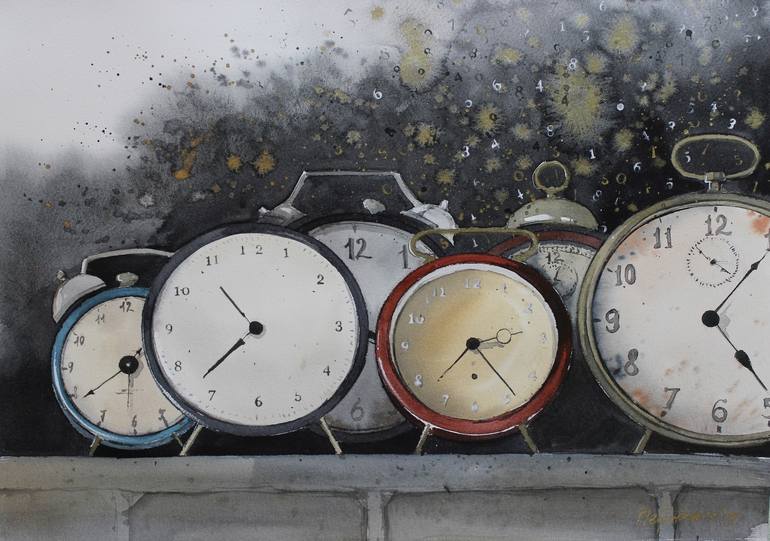
One final factor comes into play when discussing private versus public use: the price system. Prices not only allow a business to plan for the future, but to also use its resources efficiently to satisfy consumer demands at the least possible cost. The pleasing of the consumer is always goal number one, for if there is no consumer then there is no business. Since a business is liable to the consumer it looks to the consumer for signals. Profits and losses signal to that business whether it is satisfying or not satisfying demands.
Prices are a two-way street. Signals are sent from consumers to producers and vice-versa. Economist F.A. Hayek described how the large array of prices on the market communicate information: “The whole acts as one market, not because any of its members survey the whole field, but because their limited individual fields of vision sufficiently overlap [through relative prices] so that through many intermediaries the relevant information is communicated to all.”
A government does not have this built-in free market mechanism. If a government is providing a service it has little to no incentive to be efficient. It cannot go out of business. It will restrict access or use of resources or simply tax the citizen more. Rothbard comments on this:
Since government services are almost never priced so as to clear the market, i.e., equate supply and demand, it tends to price far below the market, and therefore bring about an artificial “shortage.” Since the shortage is manifest in people not being able to find the product, government’s … bent leads it invariably to treat the shortage by turning to coercive restraints and rationing.
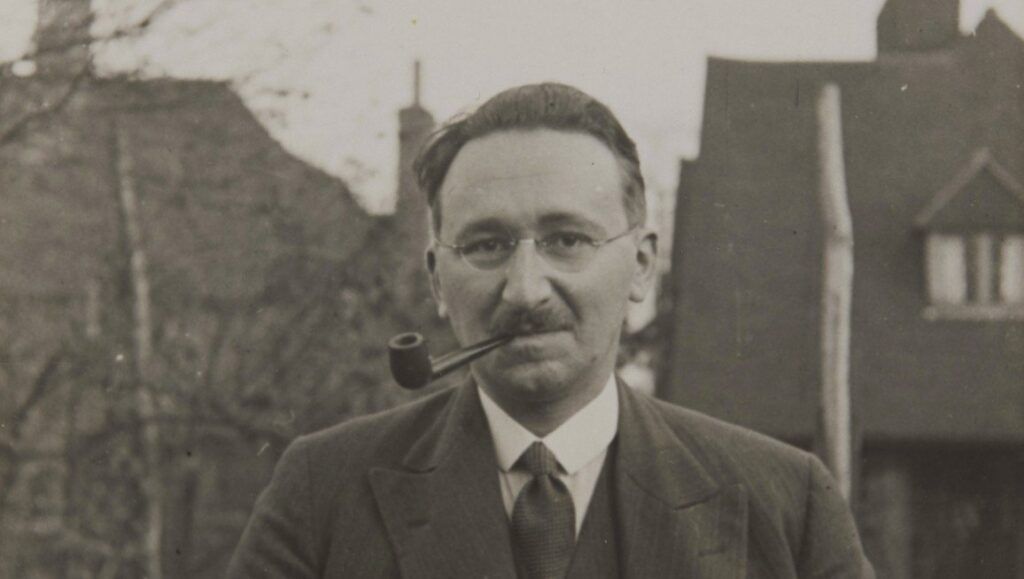
In order to administer all these collective wants and exclude free riders the State is left with only one “administrative” choice — taxation. Each individual must be coerced into paying for all particular amenities the State provides. Frank Chodorov aptly shows that taxation is an ethical concept tied to theft and cannot be framed as anything more:
We object to the taking of our property by organized society just as we do when a single unity of society commits the act. In the latter case we unhesitatingly call the act robbery, a malum in se. It is not the law which in the first instance defines robbery, it is an ethical principle, and this law may violate but not supersede. If by the necessity of living we acquiesce to the force of law, if by long custom we lose sight of the immorality, has the principle been obliterated? Robbery is robbery, and no amount of words can make it anything else.
Chodorov was always unwilling to waver from this position, stating, “There cannot be a good tax or a just one; every tax rests its case on compulsion.”
Preceding Chodorov, individual-anarchist Lysander Spooner railed against the nature of taxation with his scathing allusion to the highwayman:
The fact is that government, like a highwayman, says to a man: “Your money, or your life.” And many, if not most, taxes are paid under compulsion of that threat … The highwayman takes solely upon himself the responsibility, danger, and crimes of his own act. He does not pretend that he has any rightful claim to your money, or that he intends to use it for your own benefit. He does not pretend to be anything but a robber. He has not acquired impudence enough to profess to be merely a “protector,” and he takes men’s money against their will, merely to enable him to “protect” those infatuated travelers … having taken your money, he leaves you as you wish him to do. He does not persist in following you on the road, against your will; assuming to be your rightful “sovereign,” on account of the “protection” he affords you. He does not keep “protecting” you by commanding you to bow down and serve him; by requiring you to do this, and forbidding you to do that; by robbing you of more money as often as he finds it for his interest or pleasure to do so; and by branding you as a rebel, a traitor, and an enemy to your country, and shooting you down without mercy, if you dispute his authority, or resist his demands … In short, he does not, in addition to robbing you, attempt to make you either his dupe or his slave.
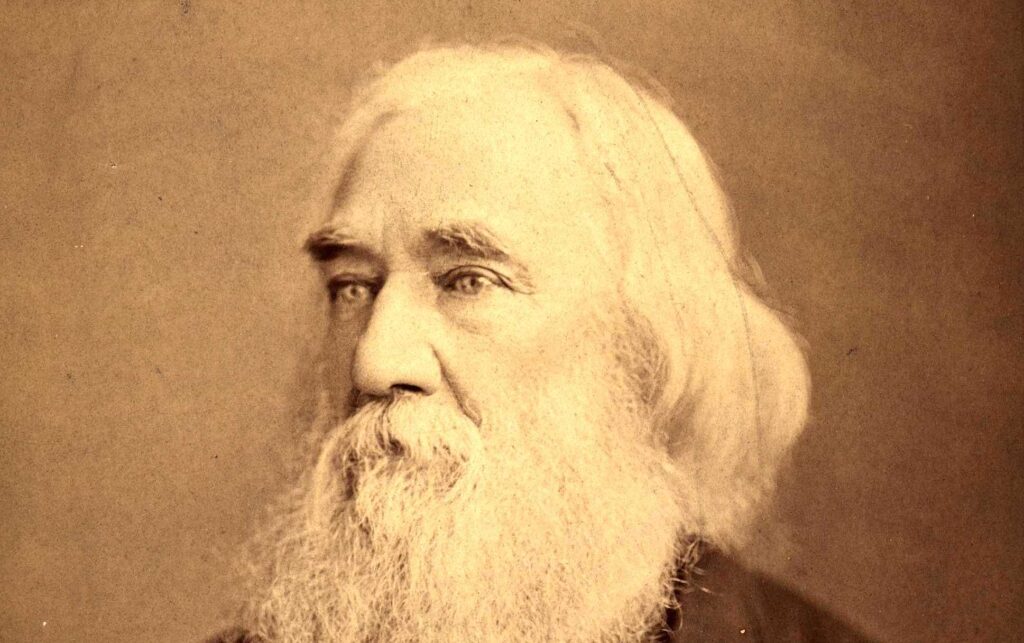
Obviously, the collection of taxation occurs in unequal amounts, i.e., certain individuals pay more than others. This also goes the other way as well—certain individuals also reap more benefits from taxation than they pay directly to the State. John C. Calhoun noted this:
The necessary result, then, of unequal fiscal action of the government is to divide the community into two great classes: one consisting of those who, in reality, pay the taxes and, of course, bear exclusively the burden of supporting the government; and the other, of those who are the recipients of their proceeds through disbursements, and who are, in fact, supported by the government; or, in fewer words, to divide it into tax-payers and tax- consumers.
Since taxes provide for various public works the average person misses the counterfactual applications. For example, Jones drives over a new bridge on his way to work. Clearly, he realizes that he has been able to take a new route to work by traveling over a bridge paid for via taxation. This is what Jones directly sees. What he does not see is what that money would have gone toward had it not been forcibly appropriated from his fellow citizens.
Bastiat was famous for pointing out that this type of analysis was the basis of all discussions in political economy. In his essay, “What is Seen and What is Not Seen,” he sets up a story of a boy breaking a pane of glass and how many come not to admonish the boy, but instead congratulate him because it keeps industry functioning. Bastiat uses the tale to draw out the counterfactual implications:
Suppose that it will cost six francs to repair the damage. If you mean that the accident gives six francs’ worth of damage to the aforesaid industry, I agree. I do not contest it any way; your reasoning is correct. The glazier will come, do his job, receive six francs, congratulate himself, and bless in his heart the careless child. This is what is seen. But if, by way of deduction, you conclude, as happens only too often, that it is good to break windows, that it helps circulate money, that it results in encouraging industry in general, I am obliged to cry out: That will never do! Your theory stops at what is seen. It does not take account of what is not seen. It is not seen that, since our citizen has spent six francs for one thing, he will not able to spend them for another. It is not seen that if he had not had a windowpane to replace, he would have replaced, for example, his worn-out shoes or added another book to his library. In brief, he would have put his six francs to some use or other for which he will not have them.
Hulsmann has brought the work of French economist Frederic Bastiat back into focus after many years of academic neglect to stress that opportunity cost is dependent on the means available to the actor. Thus, when one speaks of an opportunity cost, e.g, going to a performance at the theater instead of out to dinner at a restaurant, while what is present is the actual choice, we can still realize that there were foregone alternatives that could have been sought using the same means — in this case the time and money that went toward the theater performance could have went toward the dinner. Hulsmann defends this method of analysis saying,
counterfactual laws of human action really exist, and they are exact and universally valid. Their very existence counters the view that economic science is fundamentally inexact. He who ventured to deny the existence and exactitude of counterfactual laws would have to deny that human beings choose, that choice involves different alternatives, and that it takes place in a physically finite universe … counterfactual laws … are not fictitious. All elements of counterfactual analysis are realistic.
Henry Hazlitt was so fond of Bastiat’s tale that he used it as the starting point for economic analysis. He simply referred to it as “The Lesson.” His summation was, “The art of economics consists in looking not merely at the immediate but at the longer effects of any act or policy; it consists of tracing the consequences of that policy not merely for one group but for all groups.”

Bastiat’s lesson of what is seen and what is not seen goes one step further. In a public government, e.g., a direct democracy or constitutional republic, the fact that every citizen can potentially have access to some form of political means — whether it is becoming a politician or pushing new legislation through a legislative branch — obstructs them from seeing the massive amount of forced appropriation.
Again, like before, they see the direct effects of a piece legislation, e.g., a minimum wage, but they don’t see where the employer’s money could have been spent had they not be forced to pay more than the free-market price for labor.
Bastiat delivers a passage of extreme precaution:
if the fatal principle should come to be introduced, that, under pretence of organisation, regulation, protection, or encouragement, the law may take from one party in order to give to another, help itself to the wealth acquired by all the classes that it may increase that of one class, whether that of the agriculturists, the manufacturers, the shipowners, or artists and comedians; then certainly, in this case, there is no class which may not pretend, and with reason, to place its hand upon the law, which would not demand with fury its right of election and eligibility, and which would overturn society rather than not obtain it … Since everybody traffics in law for his own profit, we should like to do the same … as long as it is admitted that the law may be diverted from its true mission, that it may violate property instead of security it, everybody will be wanting to manufacture law, either to defend himself against plunder, or to organise it for his own profit.
Thus, this is why Bastiat characterized the State as “the great fictitious entity by which everyone seeks to live at the expense of everyone else.”
Wither The State; Liberal Anarchy?
By now it should be clear — in accordance with the liberal framework of private property — the State cannot be seen as a complementary institution. The State represents everything that is not liberal. This is why it is curious for someone like Milton Friedman, who describes himself as a “liberal,” does not reject the State. He clings to the idea that the State is necessary for certain services, i.e., public goods, falling into the fallacy of conceptual realism. Thus, he devotes a large portion of his work not to developing the aspects of liberal economics, but to defining the “proper” role of government in economic affairs.
By its very nature every State — whether democratic, socialist or communist — is conservative. They are all conservative in their choice of means. A monopoly on force and its corollary — the power of taxation, i.e, forced appropriation — is the conservative means all States use and seek to preserve. The only difference is in the ends.
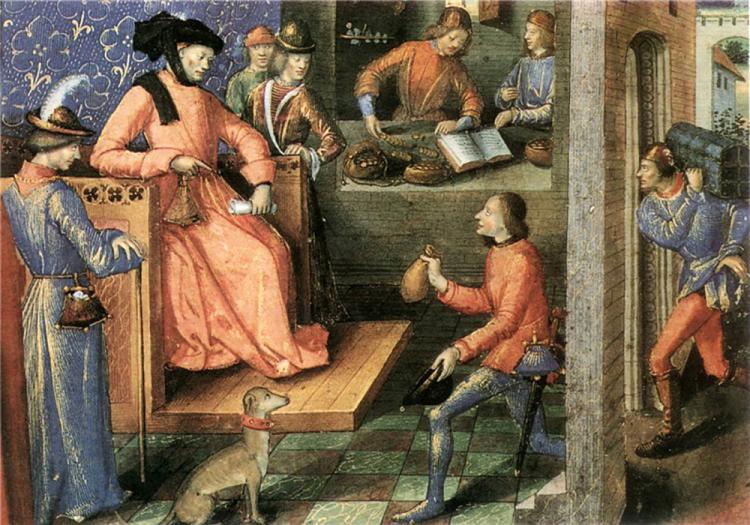
A total rejection of the State means a total acceptance of the axiom of private property and its logically deducible concepts. Hence, it is no surprise that consistent liberals are now referred to as Libertarians or anarcho-capitalists. As Hoppe notes, “Private property anarchism is simply consistent liberalism; liberalism thought through to its ultimate conclusion, or liberalism restored to its original intent.”
Libertarianism can be seen as a “package deal.” It is contradictory to call oneself a “limited government libertarian” or support any unprovoked violation of another’s property. Either property is absolute or it ceases to hold any theoretical and practical substance.
Perhaps no term plagues the field of political science more than the idea of “rights.” Yet, to the anarcho-capitalist, the term is meaningless on its own. The word property must be placed in front of it to have any meaning. While Ayn Rand was a minarchist — a proponent of limited government — she clearly described the notion of rights as property rights saying, “The right to life is the source of all rights — and the right to property is their only implementation. Without property rights, no other rights are possible.”
For example, it is spurious to talk of a human right or collective right to free speech. The crucial question is, “Where do I have a right to free speech and with what?”
If a free market devotee goes to a neighbor’s house (who happens to be a staunch communist) and starts to elaborate on the wonders of private property and the price system, does the the communist neighbor have a right to stop him? Clearly, yes. For while the free market devotee has a property right in his own person, he has moved his body onto the property of his neighbor and must respect the property rights of his neighbor. Should the communist not care for his neighbor’s diatribe, he would be within his property right to ask the neighbor to leave due to his unacceptable speech.
Property rights tell what can be done, i.e., what means are available to an actor. They do not say what ought to be done by that actor. Professor Sadowsky illustrates the difference between rights and potential morals:
When we say that one has the right to do certain things we mean this and only this, that it would be immoral for another, alone or in combination, to stop him from doing this by the use of physical force or the threat thereof. We do not mean that any use a man makes of his property within the limits set forth is necessarily a moral use.
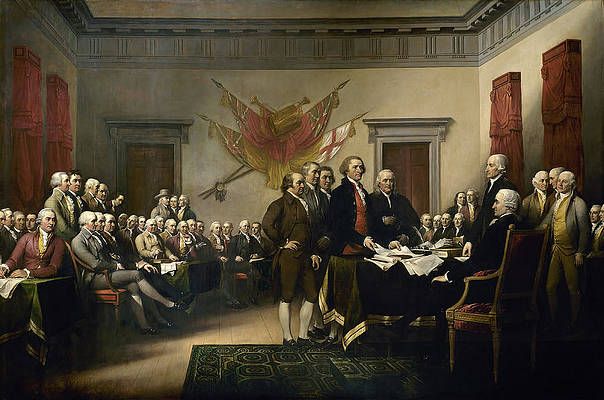
Indeed, this is why Herbert Spencer’s Law of Equal Freedom is often quoted by Libertarians: “Every man has freedom to do all that he wills, provided he infringes not the equal freedom of any other man.” It is also why Proudhon’s reference to liberty, calling “Liberty, the Mother, not the Daughter, of Order,” is often cited. Liberty is tied to one’s property and since it’s a logical deducible from the axiom of property, it enables each individual to use their own reason to critique the matters of property disputes.
The total rejection of the State is shared with the anarcho-communists. But, as Rothbard notes, “If there is one thing, for example, that anarcho-communism hates and reviles more than the State, it is the right of private property.”
Note how Marx and Engels — the architects of communism — clearly spell out their disdain for private property by saying, “the theory of the Communists may be summed up in the single phrase: Abolition of private property.”
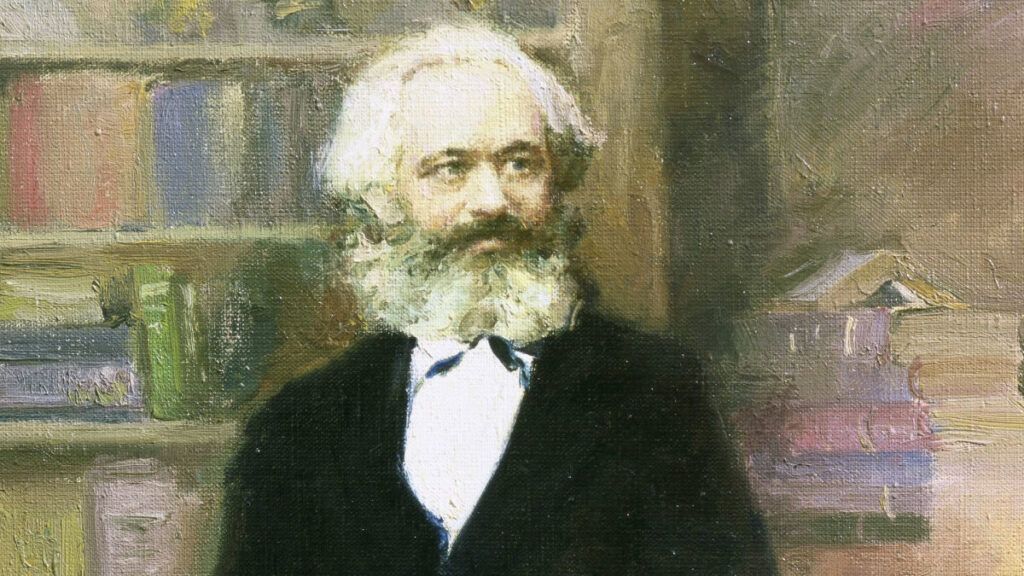
Yet, the reason the concept of property exists is because goods are scarce. Hoppe elaborates on scarcity:
only because scarcity exists is there even a problem formulating moral laws; insofar as goods are superabundant (free goods), no conflict over the use of goods is possible and no action-coordination is needed. Hence, it follows that any ethic, correctly conceived, must be formulated as a theory of property, i.e., a theory of the assignment of rights of exclusive control over scarce means, for only then does it become possible to avoid otherwise inescapable and unresolvable conflicts. Unfortunately, moral philosophers in their widespread ignorance of economics have hardly ever seen this clearly enough.
Anarcho-communists try to get around this fundamental condition of human existence by claiming the world is now or will eventually be in a “post-scarcity” phase. Rothbard demonstrates the absurdity of this claim:
while our condition of scarcity is clearly superior to that of the caveman, we are still living in a world of pervasive economic scarcity. How will we know when the world has achieved “post-scarcity”? Simply, we will know when all the goods and services that we may want have become so superabundant that their prices have fallen to zero [free goods or general conditions of human welfare], in short, when we can acquire all goods and services as in a Garden of Eden — without effort, without work, without using any scarce resources.
The allusion to the Garden of Eden may seem strange considering the Atheist standing of most modern Communists, but if anything, Communism started as a purely reabsorptionist religious movement, i.e., one that sought to reunite man with God and create, in Hegel’s words, “man-God.”
Not only does the anarcho-communist run into a problem when confronting the nature of scarcity, but in the act of arguing with another person, e.g, an anarcho-capitalist, he ends up proving the existence of property. One cannot argue that one cannot argue. This is an a priori concept. If one tried to deny its substance they would be caught in a performative contradiction. Hoppe explains the nature of this concept:
Argumentation is not just free-floating propositions but always involves also at least two distinct arguers, a proponent and an opponent, i.e, argumentation is a subcategory of human action … The mutual recognition of the principle of original appropriation [Lockean homesteading], by both proponent and opponent, constitutes the praxeological presupposition of argumentation. No one can propose anything and expect his opponent to convince himself of the validity of this proposition or else deny it and propose something else unless his and his opponent’s right to exclusive control over their “own” originally appropriated body (brain, vocal chords, etc.) and its respective standing room were already presupposed and assumed as valid … if the recognition of the principle of original appropriation forms the praxeological supposition of argumentation, then it is impossible to provide a propositional justification for any other ethical principle without running thereby into performative contradictions.
Praxeology is the science of purposeful human action. All its theorems are “unboxed” from the action axiom which states that “man acts using means to obtain ends.” If one wanted to try to falsify this proposition they would have to employ means to obtain ends. Thus in one’s attempt to disprove the action axiom, one ends up proving it.
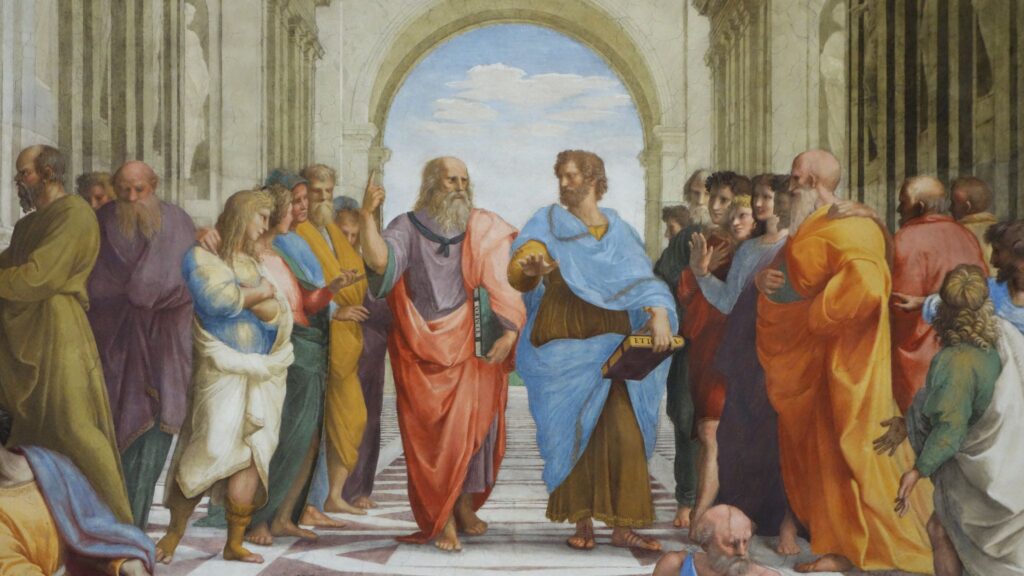
Frank Knight commented on the logical importance of a priori concepts:
The apparent universal necessity, or a priori validity of any proposition which seems to have it, is far less mysterious than is often represented. It may be true to say that universally necessary propositions are “forms of thought,” or laws of intelligence and mind; but such a statement does not mean at all that they are not truths about the real objective world. Rather the a priori necessity of any proposition is simply, and in this writer’s view, correctly, explained by the fact that our minds lack any power of really creative imagination or original intuitive knowledge of superempirical reality, and not by the fact that we possess any such powers. Any statement which “must” be true under all conditions is simply a statement of a fact about the world which is so universal and fundamental for experience that we cannot “think it away,” or imagine a situation in which it would not be true.
